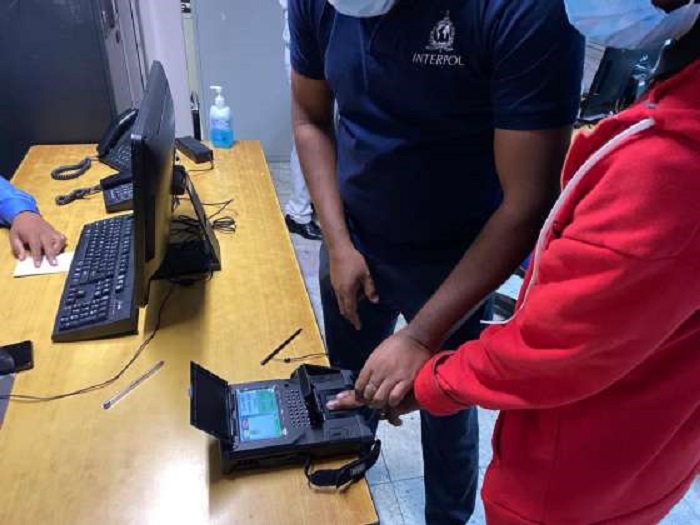
INTERPOL’s Operation Flycatcher has helped Sri Lanka arrest six suspects linked to terrorism.
Boosting the ability of frontline border officers to detect travelers as potential terrorists was the focus of counter-terrorism (CT) and border management operations led by INTERPOL across Sri Lanka.
Codenamed Operation Flycatcher II, the five-day (8 – 12 November) operation saw the arrest of six suspects linked to terrorism, with further arrests and prosecutions foreseen globally as investigations continue to unfold, INTERPOL said in a statement today.
The operation saw Sri Lanka’s police, border, and immigration agencies undertake specialized INTERPOL training on forensic identification techniques, CT investigative skills, and INTERPOL’s data sharing mechanisms before carrying out tactical operations in the field
“Access to information in our databases is at the heart of INTERPOL’S counter-terrorism operations, especially those that can prevent travel,” said INTERPOL’s Director of Counter-Terrorism, Gregory Hinds.
“Operation Flycatcher demonstrates the importance for countries to use INTERPOL’s wide range of criminal databases in strategic places like border crossings,” Hinds added.
With biometric data playing a growing role in tackling crime and terrorism, officers worked together using INTERPOL’s biometric identification capabilities to identify potential terrorism suspects.
The operation saw more than 800 hits and new uploads to INTERPOL’s wide range of criminal databases, particularly its stolen travel documents database with more than 100 million documents reported stolen from all over the world.
Stolen passports are a key asset for terrorist mobility, particularly for foreign terrorist fighters returning from conflict zones.
INTERPOL’s databases contain details on around 135,000 foreign terrorist fighters, with data collected from hotspots such as borders, battlefields, and prisons.
Highlighting how terrorist activity is often linked to other crime areas, more than 200,000 checks on INTERPOL’s wanted persons’ database led not only to the identification of potential terrorists but also men and women wanted for forging travel documents, fraud and financial crime, weapons smuggling, and human trafficking.
The financing of terrorism is a core component of INTERPOL’s strategy in the fight against terrorism.
Traveler’s names were checked against INTERPOL’s databases of suspicious financial transactions in the framework of INTERPOL’s Financial-to-Law Enforcement exercise (FINLEX).
Seven suspects and five suspicious monetary transactions were detected, prompting investigations in associated countries.
“Boosting the way we work nationally to detect terror suspects travelling in Sri Lanka means making sure all our police agencies have the necessary capabilities, skillsets, and mechanisms in place to prevent and investigate the crime area holistically,” said Chief Inspector Lakshman Rajakaruna who heads operations at the INTERPOL National Central Bureau in Colombo.
‘This is why such a wide range of Sri Lankan agencies took part in this important operation, coming together with the common goal of tackling terrorism from all angles, together with INTERPOL,’’ added Mr Rajakaruna.
INTERPOL coordinated the cooperative action of nine national law enforcement agencies working together across Sri Lanka and at Bandaranayaka International Airport using INTERPOL capabilities to detect potential terrorists.
Ahead of operations, Sri Lankan agencies received and analyzed INTERPOL-sourced intelligence on transnational terrorist networks to better understand their methods, motives, and financing and – ultimately – to identify and arrest suspects.
Operations in the field enabled investigators to link a number of suspects to terrorist organizations active in Sri Lanka, including the Liberation Tigers of Tamil Eelam (LTTE), the Islamic State (IS), and the National Thowheeth Jama’ath which was the terrorist group responsible for the 2019 Easter Bombings attack in Sri Lanka. (Colombo Gazette)
